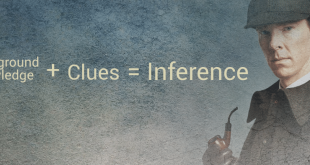.[embedded content]
Read More »Ontological emergence
.[embedded content]
Read More »Wittgensteins Sprachphilosophie — der Fliege den Ausweg aus dem Fliegenglas zeigen
Wittgensteins Sprachphilosophie — der Fliege den Ausweg aus dem Fliegenglas zeigen .[embedded content]
Read More »David Graeber on the importance of Roy Bhaskar’s work
David Graeber on the importance of Roy Bhaskar’s work .[embedded content] No philosopher of science has influenced yours truly’s thinking more than Roy Bhaskar did. Roy always emphasised that the world itself should never be conflated with the knowledge we have of it. Science can only produce meaningful, relevant and realist knowledge if it acknowledges its dependence of the world out there. Ultimately that also means that the critique yours truly wages...
Read More »On the limits of formal methods in causal inference
On the limits of formal methods in causal inference Our problem is … with the temptation to think that by stating some of our assumptions more clearly, we have successfully formalized the entire inferential process … Science may indeed seek objectivity, and for this reason a deductive method for causal inference is indeed highly desirable. But this does not mean that it is possible: we cannot have one just because we decide we need one. Causal conclusions...
Read More »Moving beyond induction and deduction
Moving beyond induction and deduction .[embedded content] In a time when scientific relativism is expanding, it is important to keep up the claim for not reducing science to a pure discursive level. We have to maintain the Enlightenment tradition in which the main task of science is studying the structure of reality. Science is made possible by the fact that there are structures that are durable and independent of our knowledge or beliefs about them. There...
Read More »The man who stopped smoking and saved millions of lives
The man who stopped smoking and saved millions of lives .[embedded content]
Read More »Do RCTs really carry special epistemic weight?
Do RCTs really carry special epistemic weight? Mike Clarke, the Director of the Cochrane Centre in the UK, for example, states on the Centre’s Web site: ‘In a randomized trial, the only difference between the two groups being compared is that of most interest: the intervention under investigation’. This seems clearly to constitute a categorical assertion that by randomizing, all other factors — both known and unknown — are equalized between the experimental...
Read More »Testing causal claims
.[embedded content]
Read More »What does randomisation guarantee? Nothing!
What does randomisation guarantee? Nothing! Does not randomization somehow or other guarantee (or perhaps, much more plausibly, provide the nearest thing that we can have to a guarantee) that any possible links to … outcome, aside from the link to treatment …, are broken? Although he does not explicitly make this claim, and although there are issues about how well it sits with his own technical programme, this seems to me the only way in which Pearl...
Read More » Heterodox
Heterodox




